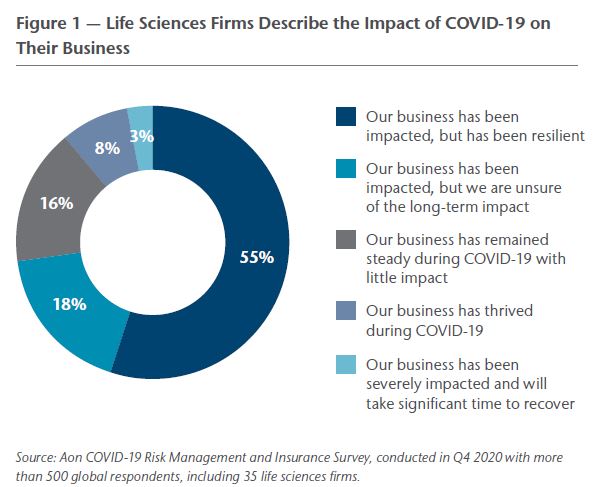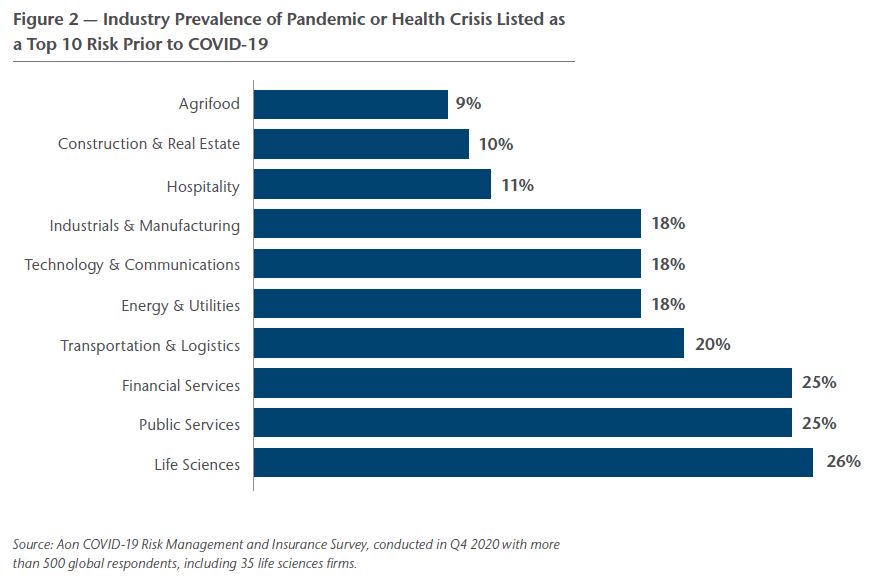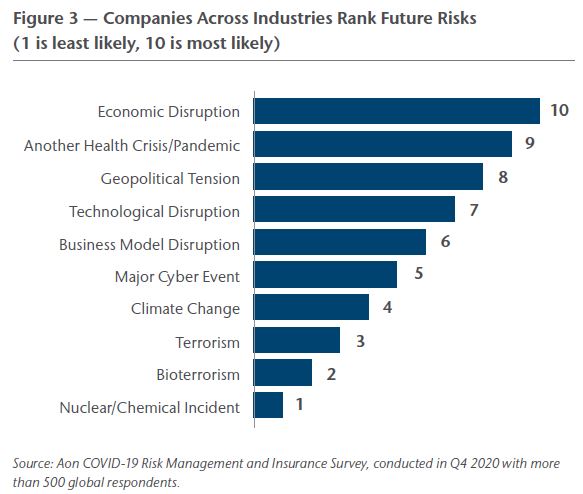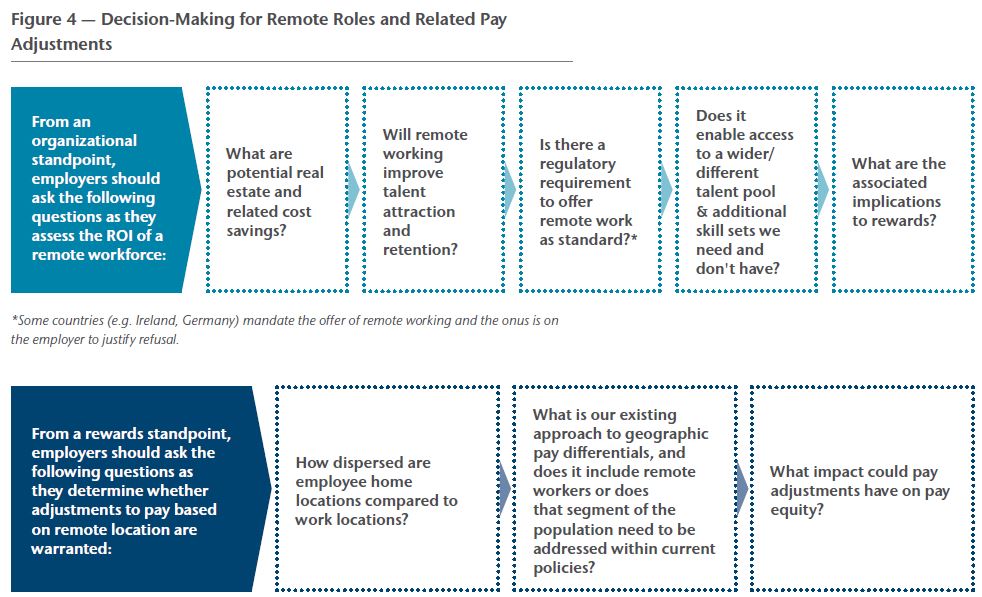
Life sciences companies, by nature of their operations, were arguably more prepared than other types of organizations for a pandemic. Based on results from Aon’s risk management survey, 45% of life sciences firms reported having a pandemic plan prior to COVID-19 (see Figure 2).

A Focus on Operational Strength for the Future
As organizations look to a stonger and more resilient future, they are placing an emphasis on protecting their people and their assets. When it comes to business operations, cost management is a priority for life sciences firms. This may seem surprising given that life sciences companies typically operate at high margins, much of which is reinvested in R&D as a central part of their strategy. However, throughout COVID-19, life sciences firms' operations have been greatly impacted — from a reprioritization of clinical trails to pandemic response initiatives — all of which has led to a refocus on cost management and business priorities.
Next to cost management, life sciences firms remain focused on reviewing their supply chain. While most large life sciences firms were sufficiently equipped to keep their labs open during the pandemic, there have been shortages of certain drugs. For pharmaceutical companies that rely on outsourcing, the supply chain challenge will be more pronounced.
As firms across industries look to the future, top-of-mind concerns include economic disruption and another health crisis — both of which the life sciences industry is arguably better poised to mitigate than many other industries.

Building a Resilient Workforce to Reshape the Future
As business leaders focus on protecting their people, they are addressing ways to reshape and optimize their workforce for the future. A key pillar of this work is building resiliency among the workforce — empowering your people to thrive on change. To foster resilience in your people, an employer’s approach to wellbeing needs to be employee-centric, aligned to the needs of its workforce and well-communicated.
“At its core, there are three indicators of workforce resilience: a fundamental sense of security at work, a strong sense of belonging with the employer, and the adaptability and motivation you need to reach your full potential,” says Marinus van Driel, associate partner in Aon’s human capital practice.
A key component of building a resilient workforce is through addressing employee wellbeing. In Aon’s
Rising Resilient report, our health experts explain that despite almost all employers offering something to support their employees’ physical and emotional wellbeing, only 30% of employees are considered resilient. Indeed, during the pandemic, employee wellbeing has received greater focus with organizations refining their programs. Our health data shows that 42% of employees do not feel secure and 52% do not feel a sense of belonging
[4].
Within the life sciences space, we saw many of our clients creating more flexibility for employees dealing with personal situations, such as caregiver duties and helping their children learn from home. Beyond the pandemic, these organizations can continue providing this assistance through initiatives like the continuation of flexible work schedules, hybrid working models and customized wellbeing initiatives — all while retaining the strong, mission-critical cultures built within these organizations.
To address wellbeing initiatives and more, life sciences firms are creating a separate task force. Sixty-four percent
[5] said they have a future of work task force that is tackling remote working, flexible work schedules and creating diversity, equity and inclusion among their workforce. An additional 10% are considering establishing one. That’s an increase from just over half of the 176 life sciences firms we surveyed in December 2020 that were setting up a task force.
A lot of work on executing future-of-work priorities remains to be completed. Compared to other industries such as technology, fewer life sciences companies have determined which job roles and individuals in those roles are suitable for permanent remote working or hybrid working models. While lab-based roles, for example, can’t be done remotely, many others job roles can be. A key priority for HR and business leaders in the coming months is determining the job roles that can be done remotely, and then, taken a step further, assessing the core competencies of individuals in those roles that are apt for being successful in remote roles. Our decision tree in Figure 4 details the types of questions leaders should ask when making these determinations.

Next Steps
As the life sciences industry positions itself for robust growth in the coming years, leaders will need to work through the inherent risks and opportunities that were exposed by the pandemic — from protecting their assets and supply chain to ensuring their workforce is positioned to work in new ways.
To learn more about the topics discussed in this article, please visit the following resources:
[1] https://www.bdo.com/insights/industries/life-sciences/the-biotech-ipo-boom
[2] Aon Global COVID-19 Risk Management and Insurance Survey, conducted in Q4 2020 with more than 500 global respondents
[3] Aon Salary Increase and Turnover Survey – Second Edition, December 2020; based on responses from 410 life sciences firms across 114 countries
[4] Aon Rising Resilient report at aon.com/risingresilient
[5] Aon HR Pulse Survey #7: Preparing for the Future, conducted in April 2021 with 1,451 global respondents, including 210 life sciences firms